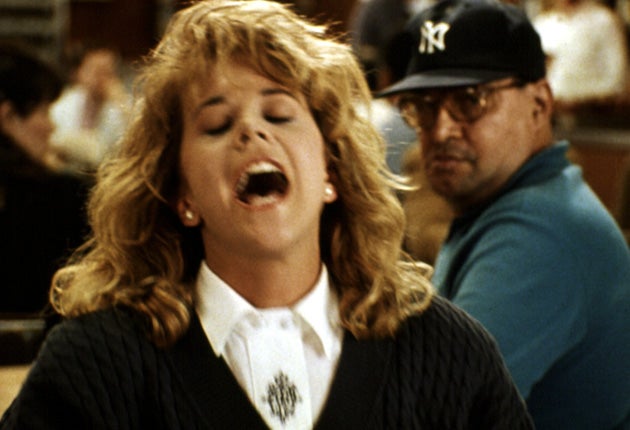Now you can have what she’s having...
Drug tested as new anti-depressant is hailed instead as 'Viagra for women'

As the old joke has it, men can be turned on with a simple flick of a switch while women require attention to a battery of dials and buttons. Today the debate over how to stimulate female sexual desire is set to be reopened with the discovery of a drug described as “Viagra for women”.
Doctors testing a new anti-depressant found it was useless as a mood brightener - but was unexpectedly effective at boosting the female libido.
Now three clinical trials have shown that the drug fibanserin significantly improved sexual desire and satisfaction in women.
The accidental discovery mirrors that of Viagra, which was being tested as a heart medicine in the 1990s when the male subjects prescribed it discovered it had a pleasing side effect.
However, fibanserin is different in that it works on the brain rather than on the genitals, according to John Thorp, professor of obstetrics and gynaecology at the University of North Carolina. Doctors have long known that in women, the brain is the most important sex organ.
Professor Thorp, who led the studies, said: “It’s essentially a Viagra-like drug for women in that diminished desire or libido is the most common feminine sexual problem, like erectile sexaul dysfunction is in men.”
“Fibanserin was a poor antidepressant. However, astute observers noted that it increased libido in laboratory animals and human subjects. So we conducted multiple clinical trials and the women in our studies who took it for hypoactive sexual desire disorder [low libido] reported significant improvements in sexual desire and satisfactory sexual experiences.”
The trial results were presented yesterday at the Congress of the European Society for Sexual Medicine in Lyon, France. Funded by Boehringer Ingelheim, manufacturer of fibanserin, the trials and were carried out among 2,000 women in the US, Canada and Europe, using four different doses of the drug. However, only the highest dose of 100 mgs a day was found to be effective.
Women taking the 100 mg dose reported having more frequent and more satisfying sex and greater desire. They were also less distressed about their previous sexual problems.
Professor Thorp said the only currently available treatment for low sexual desire in women was testosterone patches. Although testosterone is a male hormone, it is also produced in women at lower levels and plays a crucial role in sexual desire.However, it has unpleasant side effects, including acne and facial hair growth.
“These results point to a novel approach to pharmacological treatment of the sexual problem that plagues reproductive age women the most,” he said.
Previous research has suggested that between one in ten and one in four women suffers from low libido, which varies with age and whether they are pre- or post-menopause.
But critics have claimed that drug companies have exaggerated the extent of women's sexual problems to create new markets. The feminist author and sex researcher Shere Hite has said: “It is not arousal pills we need but a whole new kind of physical relations. The pharmaceutical industry is guilty not just of cynical money-grabbing exaggeration, it has misunderstood the basics of female sexuality.”
Specialists in sexual medicine agree that the female libido is more complex than the male libido, but claim it can respond to gentle hormonal stimulation.
However Irwin Nazareth, from the Royal Free and University College Medical School, London, said sexual dysfunction needs to be redefined.
In a survey of 1,000 women in north London six years ago, he found that while 40 per cent reported a lack of or loss of sexual desire, only a quarter regarded it as a problem. “For many people, reduced sexual interest or response may be a normal adaptation,” he said.
Join our commenting forum
Join thought-provoking conversations, follow other Independent readers and see their replies
Comments
Bookmark popover
Removed from bookmarks